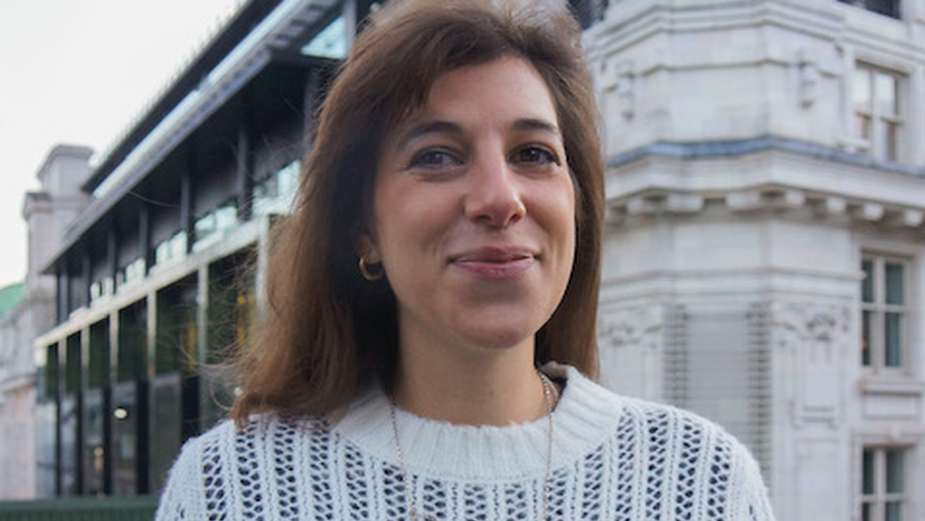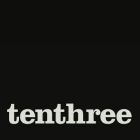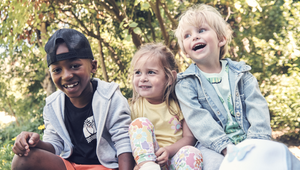
Finely Sliced: Looking for Solutions with Elena De Palma

Elena De Palma has a well established reputation, having worked with some of the industry's greatest talents such as Yann Demange, Fredrick Bond and long-term collaborator Camilla Zapiola.
Elena has great experience crafting narrative and a sharp eye for performance across comedy and drama.
Her most recent work includes Christmas campaigns with fashion brand Flannels in the UK with Camilla, and Marshalls in the US, with Sophie Eledstein at RSA.
LBB> The first cut is the deepest: how do you like to start an editing project?
Elena> After reading the treatment and scripts I like to collate SFX and music, creating a soundscape for the project. I chat to the director if they’re not in a world of pre-production pain, or catch them post-shoot if I haven’t been editing on set. Then I make myself a cup of tea or two and settle in to watch and select the rushes.
As for the first cut, those early projects such as Oppenheimer and Alan Moore remain special. I was growing alongside directors who were finding their own voice and style, it was an exciting journey for me to be part of. I still love faffing around with sound design and structure to find the sweet spot where you can just fall into the story.
LBB> Non-editors often think of editing just in technical terms but it’s integral to the emotion and mood of a film. How did you develop that side of your craft?
Elena> It's a mixture between the two. My selects are a candy store of moments that I’ve chosen based on the reaction I had to; performance, cinematography or even something that I think may come in handy. In 60 seconds or less, to set a scene, play out the action and convey a message, you use your technical skills to nudge these moments along.
LBB> How important is an understanding of story and the mechanics of story?
Elena> It’s important to know the intention, so that you can create the right journey. Comedy spots with a rug pull have to be immersive from the beginning, such as the Citroen 'First Dates' or Experian 'Lift off.' Director Camila Zapiola, is fabulous with her casting and comedic eye. With Air China, director Charlie Thorne shot and recorded the interview in a documentary style, so that we could get to know our protagonist and then experience the journey through her eyes.
LBB> Rhythm and a sense of musicality seem to be intrinsic to good editing (even when it’s a film without actual music) – how do you think about the rhythm side of editing, how do you feel out the beats of a scene or a spot? And do you like to cut to music?
Elena> For me the rhythm of the edit is working when you are feeling the right things at the right time. As the edit really comes together I’ll often play it though without any sound to make sure the story is clear. Then the music can act as a supporting layer. If there’s time when we’ve found a track that we all love I’ll shift a few frames here and there, but not not to the detriment of the story.
LBB> Tell us about a recent editing project that involved some interesting creative challenges.
Elena> I cut the short 'Lesson 7' during the peak of the pandemic. Super exciting for me as I’ve always loved thrillers. For director Neil Linpow this was a true labour of love, so I wanted to do it justice for the writer and crew that had put their time into the project. The bones of the film were easy to lay. The performance was strong. The cinematography was intimate and had a natural voyeuristic feel, by the choice to operate handheld and with the use of steadicam.
It was the build up to the middle crescendo that took the most amount of time to craft. Aware of what we wanted to draw our audience's attention to, we carefully laid breadcrumbs and red herrings through the performance and the disembodied “voice” to tie everything up at the end. Neil and I went back and forth drawing on inspiration from films / listening to propaganda from existing cults and adding layers to the sound design that Josh Campbell absolutely smashed in his final design / score and mix.
LBB> How important is your relationship with the director and how do you approach difficult conversations when there is a creative difference of opinion?
Elena> We’re a team, and it’s my job to listen and ask the right questions, to execute that vision and look for solutions if something isn’t working. That's where creative differences can come in handy, exploring different viewpoints can help to fix something that isn't hitting the mark. Then it's all about bringing your shared experience to the table in order to elevate the spot.
LBB> What’s harder to cut around – too much material or not enough?
Elena> For sure not enough, but with schedules and budgets becoming so tight, it’s important to look for solutions and not problems.
LBB> Which commercial projects are you proudest of and why?
Elena> Arthritis UK, the creative team, myself and director Ben Liam Jones worked really hard to create a protagonist that felt real. The edit of his journey was intrinsic if we wanted our audience to route for our anti-hero and understand on an emotionally connected level how arthritis can interrupt a life and have a knock on effect on a larger scale. I think that was achieved here.
LBB> There are so many different platforms for film content now, and even in advertising something can last anything from a few seconds to a couple of hours. As an editor, are you seeing a change in the kind of projects you’re getting from brands and agencies?
Elena> Yes for sure, 95% of my work is traditional advertising with a few social re-sizes thrown in but there's also branded content. For instance Cadburys produced an online reality series with Curate films. I was brought in to work with a TV producer on a 20 minute episode. So it’s a wide range, 20 minutes on the long side and six sec idents on the other.
LBB> Who are your editing heroes and why? What films or spots epitomise good editing for you?
Elena> There will always be the classic film editors, and more recently Joi McMillon, Roland Gallois, Joe Walker to name a few. Like a lot of people my cinema visits have taken a dip since the pandemic so I’m throwing TV into the mix. I think that This is Us has had an incredible team of editors. Whether its seamless montage, playing with time or watching the drama unfold each episode is beautiful and emotive. Randall’s scene in the lake will stay with me for a long time.
LBB> How does editing in the commercial world differ from the film world and TV world?
Elena> As an outsider to the feature world, I would say that in commercial’s each frame becomes more precious especially as Brands are trying to compact more information into shorter and shorter time frames. With cinema you have the luxury of letting an actor's performance play out without having to interfere. I can imagine that there are the same basic similarities between the two, does the story make sense, has the world been set up so that the audience aren’t questioning this reality, was it entertaining?
LBB> Have you noticed any trends or changes in commercial editing over recent years?
Elena> I have worked with so many more female directors in the last few years. Free the bid has been an incredible door opener into agencies and it’s created a supply and demand for female directors and creatives. Editor Ellie Johnson becoming a partner at Ten/Three was one of the reasons that convinced me to join this edit house. I think that there still needs to be a bigger push for diversity within the commercial industry which I think TV and film is a little ahead of us in because of pioneers like Ava DuVernay creating collectives like ARRAY Now. I’m excited that things are changing but not content with the current status quo.













